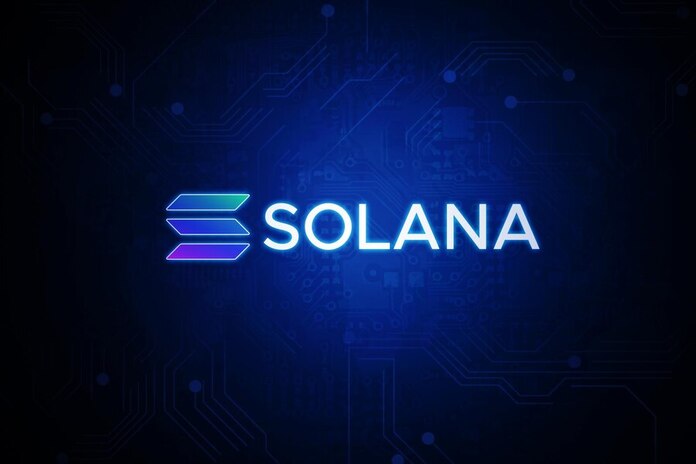Bybit Card Exclusive: Up to $150 Cashback for Hassle-Free Crypto Spending
DUBAI, UAE, June 6, 2025 /PRNewswire/ — Bybit, the world’s second-largest cryptocurrency exchange by trading volume, continues its advance in the crypto payment space with a limited-time campaign for the Bybit Card. Exclusive to new global users of Bybit Card, the new promotion unlocks 10% cashback in its new phase of global expansion.
The evolving payment solution eliminates traditional boundaries between digital assets and real-world transactions across markets. Championing crypto freedom, the Bybit Card elevates global convenience and access to premium events and partnerships for the crypto community wherever they are headed. Since celebrating its second anniversary at Bybit’s Dubai headquarters, the Bybit Card has unlocked for its users exclusive benefits at the Grand Millennium Hotel in Dubai, and subscription perks for selected AI tools and streaming services.
30-Day Incentive: All Spending Categories Accepted
Eligible for global users with more international markets unlocked, the new cashback scheme potentially offers new users an extra $150 in rewards in three simple steps:
- Applying for a Bybit Card subject to verification and approval
- Making a first-time deposit equivalent to $100 in value
- Spending on eligible crypto transactions with the new Bybit Card in the next 30 days for 10% cashback on all eligible transactions
Existing Bybit users may also enjoy the same cashback rate up to $75 during the promotional period.
Global Accessibility, Unmatched Convenience
The Bybit Card serves nearly 2 million users worldwide as a gateway for secure and instant crypto spending at over 90 million global touchpoints. More than a payment tool, it also offers earning opportunities through cashback, rewards, and APR on crypto balances.
Incorporating crypto into their way of life in everyday spending, Bybit Card holders can tap or swipe to pay in an instant around the world. Whether they are booking a flight with Cathay Pacific or sipping a cocktail at the Ritz, users stand to get 10% back with the Bybit Card.

Key Features:
- Crypto convenience: seamless spending in crypto, and cash withdrawals from supported ATMs around the world with the physical card available to Mastercard holders.
- No annual fees and up to 8% APR on balances.
- Year-round perks: 100% rebates on subscriptions including Netflix, Spotify, and selected AI tools, airport lounge access, and other benefits refreshed seasonally
- Multi-asset support: USDC, USDT, BTC, ETH, AVAX, and more.
The promotion is on a first-come, first served basis for a limited time only. Terms and conditions apply. For full benefits and more exclusive rewards, users may explore: Bybit Crypto Card: Your Ultimate Crypto Debit Card.
#Bybit / #TheCryptoArk / #TheBybitCard
About Bybit
Bybit is the world’s second-largest cryptocurrency exchange by trading volume, serving a global community of over 70 million users. Founded in 2018, Bybit is redefining openness in the decentralized world by creating a simpler, open and equal ecosystem for everyone. With a strong focus on Web3, Bybit partners strategically with leading blockchain protocols to provide robust infrastructure and drive on-chain innovation. Renowned for its secure custody, diverse marketplaces, intuitive user experience, and advanced blockchain tools, Bybit bridges the gap between TradFi and DeFi, empowering builders, creators, and enthusiasts to unlock the full potential of Web3. Discover the future of decentralized finance at Bybit.com.
For more details about Bybit, please visit Bybit Press
For media inquiries, please contact: media@bybit.com
For updates, please follow: Bybit’s Communities and Social Media
Discord | Facebook | Instagram | LinkedIn | Reddit | Telegram | TikTok | X | Youtube

Photo – https://www.007stockchat.com/wp-content/uploads/2025/06/Bybit_Card_Exclusive_Up__150_Cashback_Hassle_Free_Crypto_Spending.jpg
Logo – https://www.007stockchat.com/wp-content/uploads/2024/03/Logo.jpg
![]() View original content:https://www.prnewswire.co.uk/news-releases/bybit-card-exclusive-up-to-150-cashback-for-hassle-free-crypto-spending-302475212.html
View original content:https://www.prnewswire.co.uk/news-releases/bybit-card-exclusive-up-to-150-cashback-for-hassle-free-crypto-spending-302475212.html

Featured Image: depositphotos @ hello





